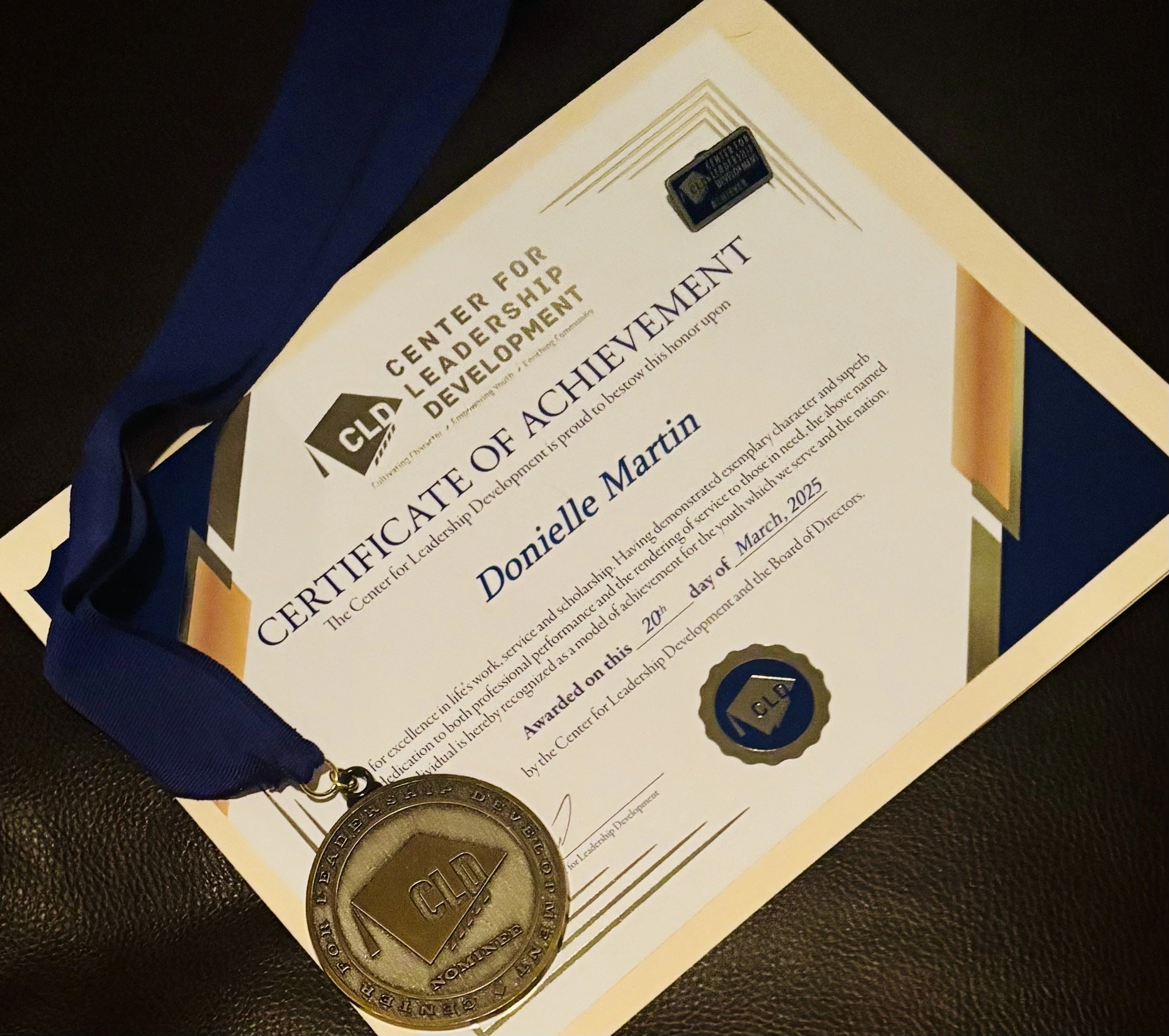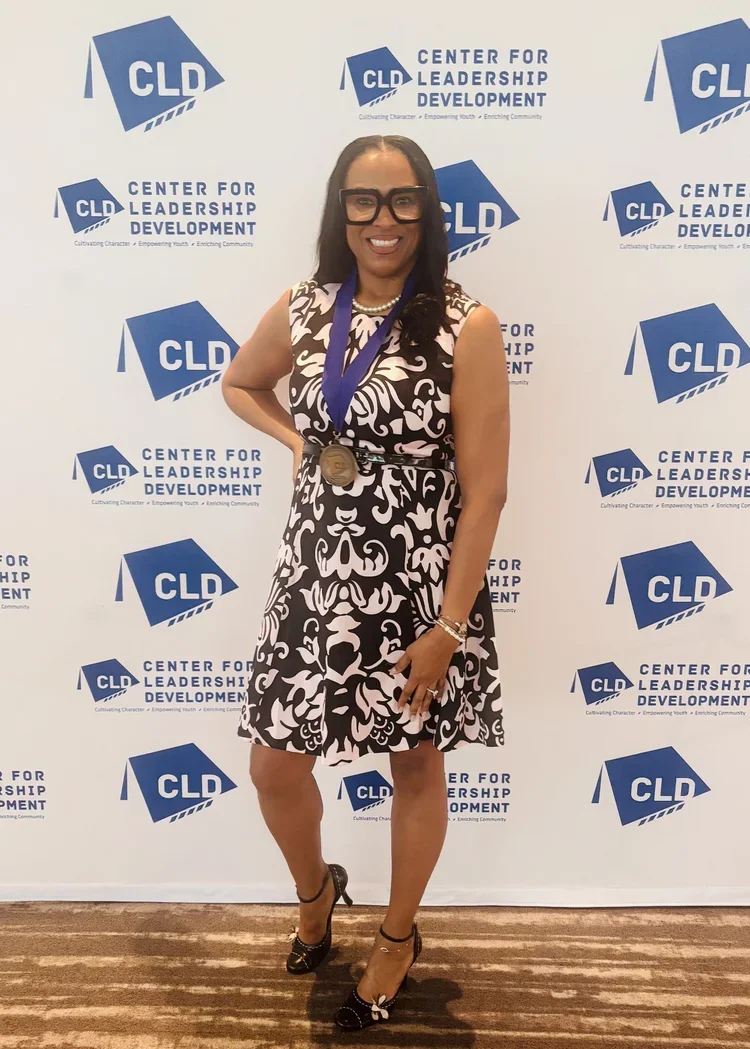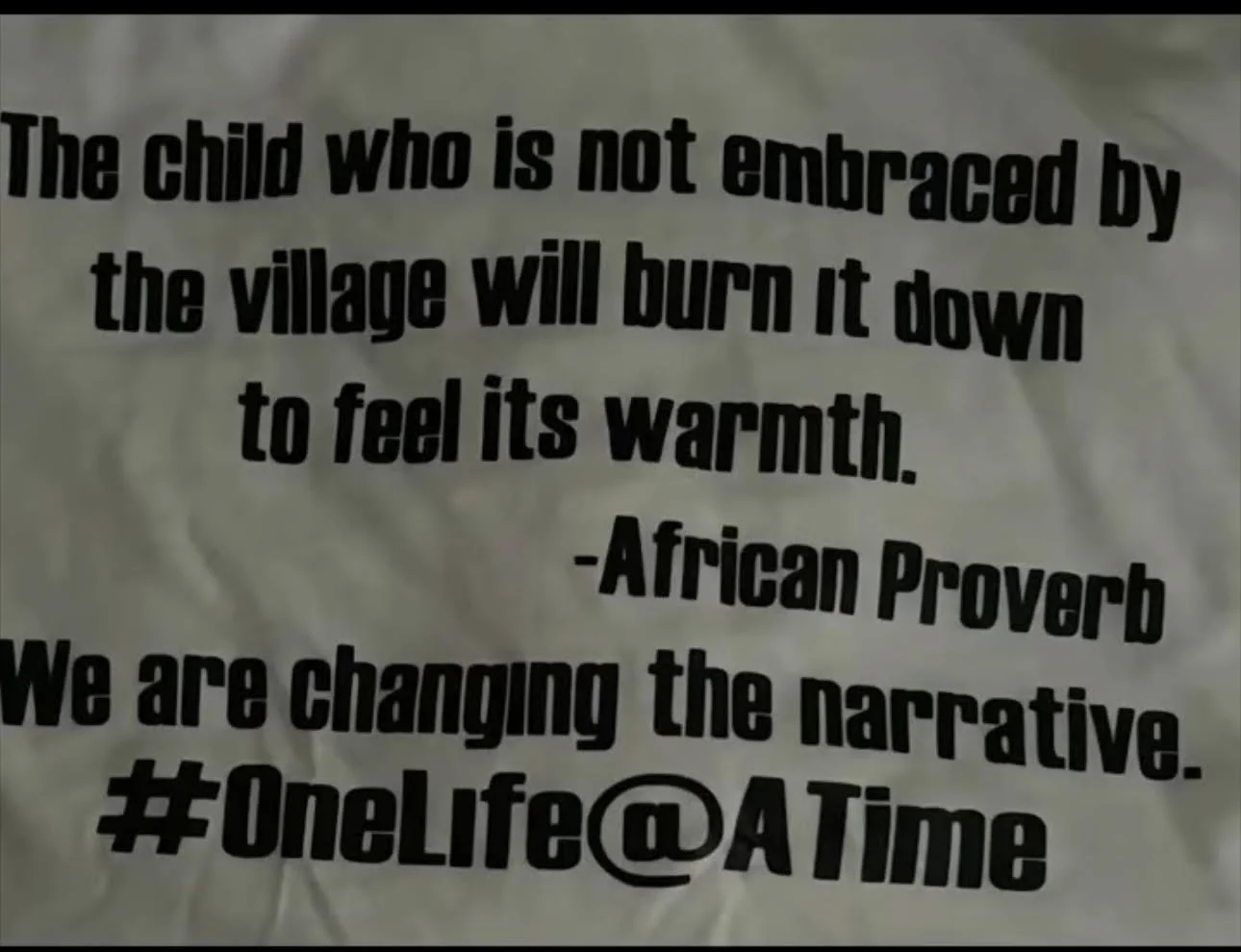Our Mission
Our mission is to inspire and empower youth to embrace their authentic selves. We achieve this by providing opportunities, such as but not limited to: hands-on experiences , leadership, community engagement, authentic voice and understanding the importance of discipline.
Through promoting community involvement, we aim to help individuals uncover their truth and thrive despite societal stigmas. Together, we will change the narrative,
#OneLife@ATime.
The inspiration behind One Life @ A Time, a 501(c)(3) nonprofit organization, was inspired by the CEO & Founder’s son, Terry, who was incarcerated at the age of 18. In 2019, he created the One Life @ A Time mentoring program while incarceration, to be the voice for the unheard and in hopes the program would reach many, to give back to society. Even though he will not be working with the young people. His vision has transformed into a meaningful program in 2023.
Let’s work together"
Our Founder
Get in trouble, good trouble, necessary trouble
John Lewis~
Request Donielle as a Speaker
“When you see a young man with a good heart, success in his grasp, but challenging choices changes everything and that young man is your son you devote your life to helping other young men understand there is a better way.”
— Donielle
Donielle Martin is the face behind One Life @ A Time, INC, and her profound commitment and lived experiences as she watched her son go to prison at the age of 18 and the lasting effects on his life while being incarcerated makes her a formidable advocate for social justice. Her leadership is crucial in advancing initiatives that support survivors, victims, and those impacted by the justice system, pre-incarceration, during incarceration, post-incarceration, driving meaningful, systemic change. Recognizing that lasting reform begins with the younger generation, Donielle is dedicated to addressing issues at the roots by engaging with youth to prevent their future involvement with a broken justice system.
Donielle’s work is centered on amplifying authentic voices and spearheading impactful advocacy, particularly in reforming the justice system.
"One Life @ A Time" is tackling a critical and often overlooked issue —educating individuals who have been incarcerated and are dealing with mental illness reintegrate into society. Navigating mental health challenges after being in prison can be incredibly complex, and advocacy in this area can make a significant difference. Here’s a framework for how family and advocates can help:
Understanding the Challenges:
1. Mental Health Awareness: Recognize that long-term incarceration can exacerbate or contribute to mental health issues like anxiety, depression, PTSD, and other conditions. Awareness of these issues is the first step in addressing them.
2. Trauma-Informed Approach: Understand that many individuals coming out of incarceration have experienced significant trauma, both during their time in prison and prior to it. A trauma-informed approach ensures that interactions and interventions are sensitive to these experiences.
Support Strategies
1. Access to Mental Health Services:
o Identify Resources: Help them connect with mental health professionals, including counselors, therapists, and psychiatrists. Look for organizations that specialize in supporting formerly incarcerated individuals.
o Navigating Systems: Assist in navigating the often-complicated systems of healthcare and mental health services.
2. Family Involvement:
o Education: Educate family members about mental health issues and the specific challenges faced by individuals who have been incarcerated. This helps in fostering understanding and reducing stigma.
o Communication: Encourage open and supportive communication within the family. Being a listening ear can make a significant difference.
3. Skill Building:
o Life Skills: Help them build skills that may have been diminished or neglected during incarceration, such as job readiness, financial management, and interpersonal skills.
o Coping Mechanisms: Support the development of healthy coping strategies for managing mental health symptoms and stress.
4. Advocacy and Legal Support:
o Know Your Rights: Advocate for their rights in accessing mental health services and navigating reentry programs. Legal aid organizations can provide support in this area.
o Policy Advocacy: Engage in advocacy for policy changes that support mental health care and successful reentry for formerly incarcerated individuals.
Building a Support Network
1. Community Resources: Connect with local support groups, nonprofits, and community organizations that offer resources and support for people in their situation.
2. Peer Support: Encourage involvement in peer support groups where individuals can share experiences and strategies for managing mental health and reintegration.
Long-Term Considerations
1. Ongoing Support: Recognize that reintegration and managing mental illness is a long-term process. Continuous support and check-ins can help maintain stability and progress.
2. Celebrating Progress: Acknowledge and celebrate milestones and progress. Positive reinforcement can build self-esteem and motivation.
By focusing on these areas, we can change the narrative “One Life @ A Time” , to help create a more supportive environment for individuals transitioning out of incarceration and dealing with mental health challenges.
Donielle Martin’s dedication to these areas underscores her commitment to fostering a more just and equitable society. Her commitment to driving meaningful change remains unwavering.
Victims:
Victims deserve attention, support, and resources just as much as those who are incarcerated. One Life @ A Time, recognizes the impact of crime on victims is essential for fostering healing and promoting justice. Supporting victims helps create a more compassionate and equitable society, where everyone’s experiences and needs are valued.
How to Support Victims Effectively
1. Connect Them with Resources
o Provide information about local social service agencies, victim advocacy groups, and the VictimConnect referral helpline
o (1-855-4-VICTIM).These resources can offer emotional support, legal assistance, and more.
2. Don’t Blame Them
o Refrain from questioning their actions or decisions. Focus on listening and validating their feelings rather than assessing blame.
3. Don’t Tell Them How to Feel
o Allow them to express their emotions freely. Avoid suggesting how they should feel about their situation; everyone processes trauma differently.
4. Call a Counselor
o Encourage them to speak with a counselor or mental health professional. You can help by providing contact information for local counseling services that specialize in trauma and victim support.
Remember
Your support can make a significant difference. Listening and providing a safe space for them to share their experiences is crucial
Civic & Community Engagement:
Civic & Community Engagement:
Inducted into the Hoosier Women Forward Class 5
Leadership initiative, Donielle was chosen as one of the cohort of 22 distinguished women leaders from across Indiana. A dynamic force, she influences meaningful change at every table she occupies.
https://hoosierwomenforward.org/donielle-martin
Legislative Advocacy:
Played a pivotal role in advocating for youth rights and influencing legislative change through her involvement in House Bill 1359.Also known as "Juvenile Law Matters." Her efforts, through Voices Corp., have been instrumental in shaping policies that impact juvenile justice.
https://www.in.gov/youthjustice/meetings/may-10,-2023-meeting
Gun Violence:
Organized a significant event aimed at addressing the pressing issue of gun violence. Facilitated a roundtable discussion in collaboration with the Day Report Boys with Voices Corp., to gather insights and feedback from the young individuals affected by gun violence. Feedback gathered from this event was then provided to the Mission Makia Foundation & McCoy Youth
(JDAI)
Advisor committee member for the Indiana Juvenile Detention Alternatives Initiative (JDAI), a bipartisan effort involving public, private, and community partnerships & contributes to improving the juvenile justice system. Donielle, demonstrates a strong commitment to driving change in restorative justice, reentry, and the judicial system. Her dedication to addressing systemic issues and promoting fairness, rehabilitation, and equity within the criminal justice system is evident in her efforts to ensure fairness and equity in legal proceedings.
https://www.in.gov/idoc/dys/jdai
Serves on the Center for Reducing Racial and Ethnic Disparities (CRR/ED) in Juvenile Justice Youth and Family Expert Advisory Council, underscoring her vital role in shaping juvenile justice reform in the United States. The work is supported by the Office of Juvenile Justice and Delinquency Prevention (OJJDP), the Center for Juvenile Justice Reform at Georgetown University’s McCourt School of Public Policy, and the Coalition for Juvenile Justice.
https://jjdpa.georgetown.edu/state-advisory-bodies/about-the-yfc-members/donielle-martin/
Inducted into “Top Ladies of Distinction, Inc”.
The organization identifies current trends that are impacting our communities negatively and implements strategies, through our programs, projects, activities, and events to shed light and educate communities on these issues. We unite as an organization to take a stance on mental and physical health disparities, economic imbalances, environmental concerns, human trafficking, gun violence, voting rights and opportunities for youth to succeed in this ever-changing world
We can be effective.
Community Boards & Committees
Voices Corporation
2024 - 2025
Executive Board of Director for Voices Corp.
Community Collaborative Community YMCA of Greater Indianapolis:
2024 - Current
Board committee member for the YMCA of Greater Indianapolis (CCB) Collaborative Community Building
Pink4 Ever , INC.
2019 - Current
Breast Cancer Advocate
https://www.pink-4-ever.org/advocacy/
American Cancer Society's Making Strides against Breast Cancer
2019 - 2021
Leadership Council Board Member
https://www.cancer.org/involved/fundraise/making-strides-against-breast-cancer.html
United Negro College Fund, Indianapolis, IN
2014 - Current
Chair of Masked Ball Gala & Chair of Bowl A Thon
https://indianapolisrecorder.com/uncf-ball/
https://indianapolisrecorder.com/uncf-ball
Recognition:
Nominated for the 2023 "Serve Indiana Awards for Excellence."
Being nominated for such a prestigious award is a testament to Donielle's dedication, passion, and impact in the community.
Center for Leadership Development (CLD)
Nominated for the 2025 “Excellence in Life’s work & Service”.
The Minority Achievers Awards recognition.”
A celebration for the achievements of minority professionals and community leaders.
https://cldinc.org/achieversawards
https://cldinc.org/wp-content/uploads/2025/04/2025-Gala-Impact-report-Final-4-1.pdf
2025 Youth Service Awards
Presented by RecZone & Center for Health & Social Science Development
One Life @ A Time, INC.,
Nominated & Accepted the award for:
“UP & Coming”
Executive Board of Directors
Board President - Amina Pierson - Martindale Brightwood - Executive Director
Secretary - Charity Black - Mental Health & Suicide Prevention
Treasurer - Terri King - CEO Avalon Alliance HC, LLC





















